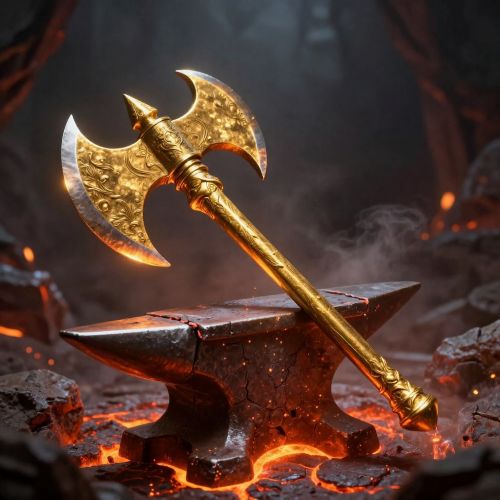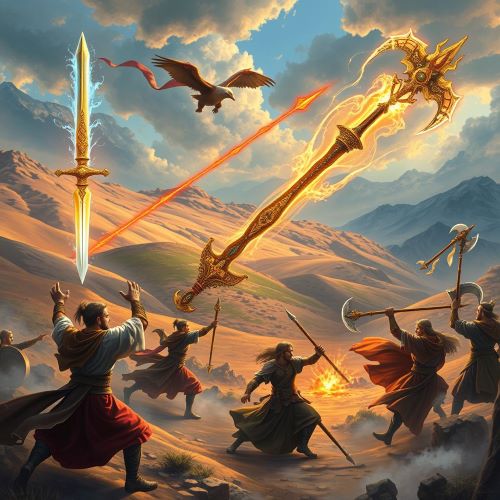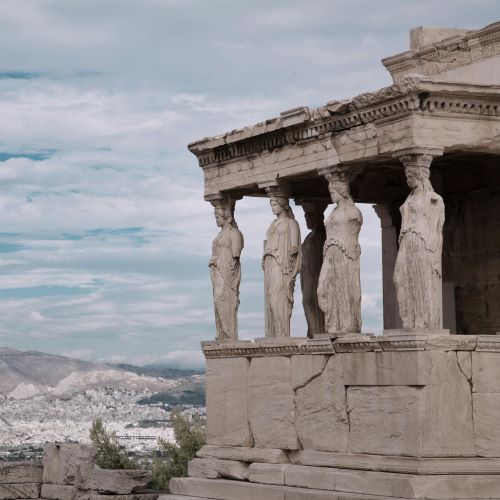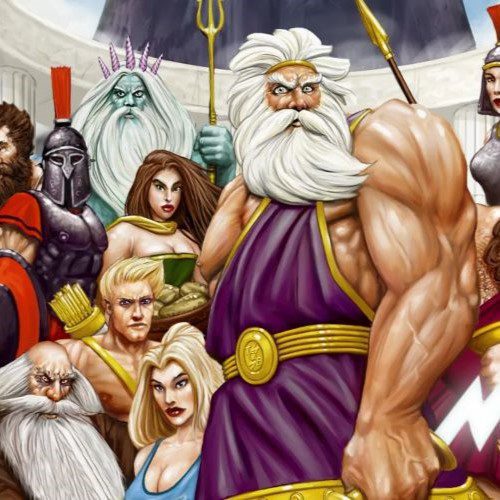Top 10 Legendary Greek Mythology Weapons and Their Powers
Greek mythology is filled with tales of mighty gods, legendary heroes, and epic battles, but at the heart of many of these stories lie the incredible Greek mythology weapons wielded by divine beings. These weapons were not just tools of war—they were symbols of power, authority, and cosmic balance. Forged by divine craftsmen like the Cyclopes or gifted by primordial forces, they often had magical properties that determined the fate of gods and mortals alike.
In this list, we explore some of the most famous weapons of the gods in Greek mythology, their origins, powers, and legendary uses.
1. Zeus’ Thunderbolt
The most iconic weapon in Greek mythology, the thunderbolt of Zeus was forged by the Cyclopes as a reward for freeing them from Tartarus. It wasn’t just a weapon—it was a symbol of Zeus’ supremacy over gods and mortals. With it, he could summon storms, hurl devastating bolts of lightning, and smite his enemies instantly. The thunderbolt was instrumental in his defeat of the Titans during the Titanomachy and was feared by all in Olympus and beyond.
2. Poseidon’s Trident
Poseidon, god of the sea, earthquakes, and horses, wielded a three-pronged trident that could stir the oceans and shatter the earth. Crafted by the Cyclopes, the trident was capable of summoning storms, creating tsunamis, and even splitting mountains. In myths, Poseidon used it to assert his power over sea creatures and to create new lands, such as when he struck the earth to produce springs.
3. Hades’ Helm of Darkness
Though not a traditional weapon in the sense of destruction, the Helm of Darkness was one of the most potent tools in Greek mythology weapons. Forged by the Cyclopes, it granted Hades invisibility and allowed him to move unseen between realms. It played a key role in the Titanomachy and later appeared in myths like Perseus’ quest to slay Medusa, where the hero borrowed it to escape unseen after his victory.
4. Athena’s Aegis
Athena, goddess of wisdom and war, carried the Aegis—a magical shield (or sometimes a breastplate) often depicted with the head of the Gorgon Medusa affixed to it. The Aegis could terrify and paralyse enemies just by sight. In some myths, Zeus also wielded the Aegis, passing it to Athena for battles. Its fearsome power made it as much a psychological weapon as a physical one.
5. Artemis’ Bow and Arrows
The huntress goddess Artemis was unmatched in archery. Her bow, often said to be crafted from silver by Hephaestus or gifted by the Cyclopes, fired arrows that never missed their target. Artemis’ arrows could bring swift death or painless sleep, depending on her will. She was fiercely protective, using her bow to punish those who threatened her sacred animals or defied divine law.
6. Apollo’s Bow and Arrows
Twin brother to Artemis, Apollo wielded a golden bow and arrows. His arrows carried plagues or healing, reflecting his dual role as bringer of disease and god of medicine. Apollo’s mastery of archery was legendary, and his weapons often played symbolic roles in myths about prophecy, justice, and divine punishment.
7. Hermes’ Caduceus
While the Caduceus—a winged staff entwined with two serpents—was not a weapon of war, it held immense power in diplomacy, peacekeeping, and magic. Hermes, the messenger god, used it to guide souls to the underworld and resolve conflicts. In some myths, the Caduceus could lull people into sleep or awaken them instantly.
8. Hephaestus’ Smithing Tools
As the god of fire and craftsmanship, Hephaestus’ greatest weapons were his forge and tools. While not combat weapons themselves, they created the armour and arms of the gods, from Achilles’ shield to the chains that bound Prometheus. His mastery made him the unseen force behind nearly every divine weapon in Greek mythology.
9. The Harpe Sword
The Harpe was a unique curved sword associated with both gods and heroes. Originally wielded by Cronus to overthrow Uranus, it later passed into the hands of Perseus, who used it to behead Medusa. The Harpe’s distinctive hook made it ideal for disarming enemies, and in myth, it was often imbued with divine craftsmanship.
10. Dionysus’ Thyrsus
Dionysus, god of wine and ecstasy, carried the Thyrsus—a staff tipped with ivy or a pinecone. Though it seemed harmless, in myths it could be used to channel divine energy, inspire frenzy, or even strike down enemies. It was a symbol of both fertility and chaos, reflecting Dionysus’ unpredictable nature.
Conclusion
The Greek mythology weapons of the gods were more than mere instruments of battle—they were extensions of divine will and cosmic order. Each weapon reflected its owner’s domain, power, and personality, shaping the myths that have captivated humanity for centuries. From Zeus’ thunderbolt to Artemis’ bow, these weapons remain some of the most iconic symbols in world mythology.
No posts were found.









